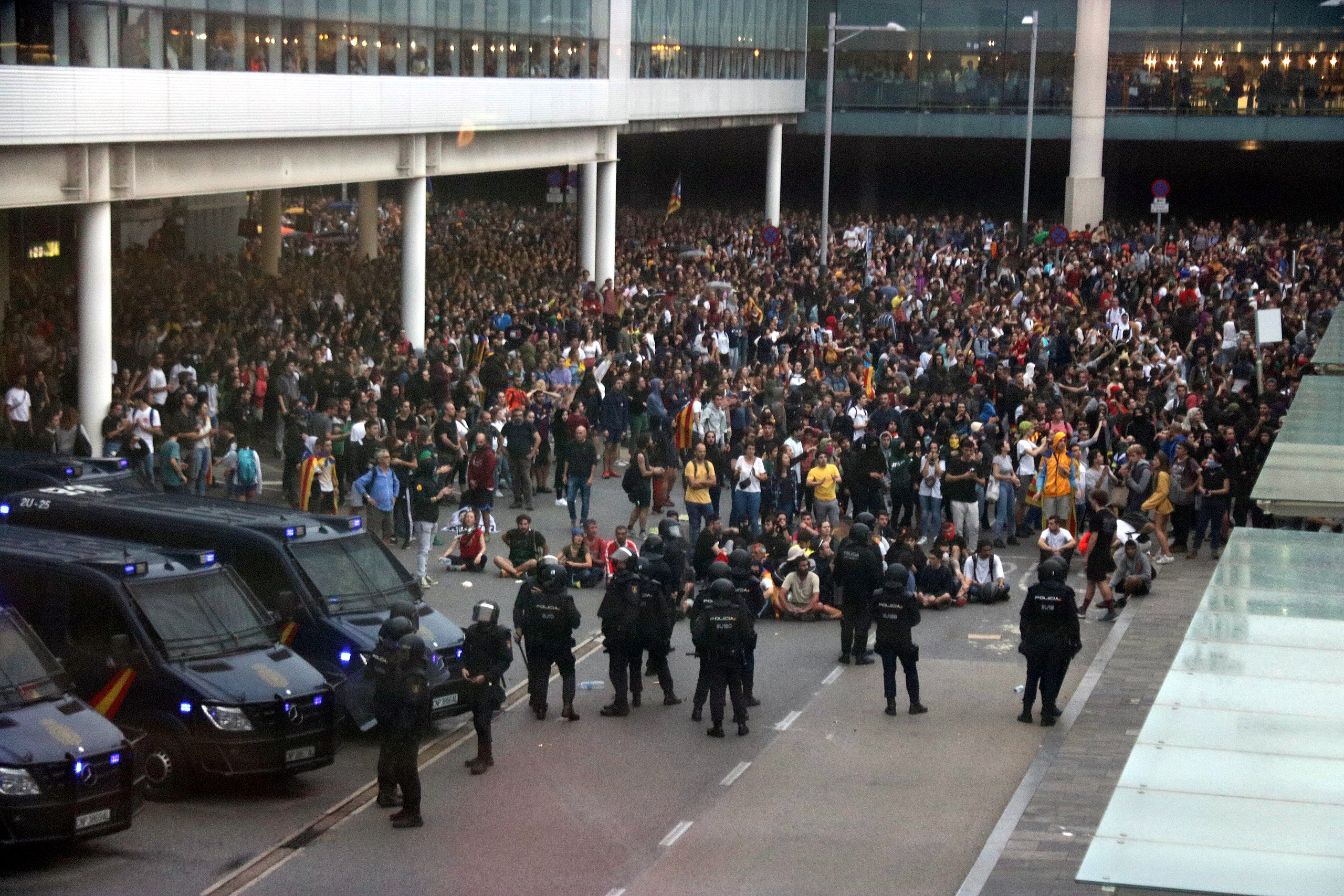The Catalan rebels-in-waiting. A new survey on Catalonia’s independence and civil disobedience

11/04/2022
More than 70% percent of Catalan pro-independence supporters are willing to participate in civil disobedience actions to achieve their political goal.
A new survey conducted by the GESOP research center on the Catalan population’s support for independence asks for the first time the means people would be willing to use to achieve it.
Who are the disobedient Catalans?
The will of Catalans to fight for Catalonia’s independence movement is far from gone. 71.3% of pro-independence supporters are willing to take part in a peaceful civil disobedience movement to achieve Catalonia’s independence. Considering that pro-independence sentiments are shared by about half of the population, more than a third of Catalans are willing to carry out peaceful acts of civil resistance to move towards independence.
Those willing to join a civil disobedience movement are similar to other independence supporters among pro-independence voters. In most cases, we find no significant differences between the two groups of pro-independence supporters.
However, we can find some minor differences across gender and area of residence that are worth considering. For example, women tend to be slightly less eager to participate in civil disobedience. There are fewer people amongst independence supporters in the metropolitan area around Barcelona who would join civil disobedience campaigns. All in all, however, even in this area, they are a substantial majority. Those whose parents are born outside Catalonia are also slightly less willing to participate.
We find the most significant differences between those willing to participate and the rest depending on which pro-independence party they vote for. The party with most voters willing to participate in civil disobedience campaigns is the far-left Peoples Unity Candidacy (CUP), with 86%. In contrast, the voters of the moderate left-wing Republican Left of Catalonia (ERC) are the least willing to engage in civil disobedience, at 60%. The centrist party Together for Catalonia (Junts per Catalunya) would be somewhere between the two, with 72,9% of its voters willing to take part in peaceful civil disobedience campaigns to achieve Catalonia’s independence.
Across all ages and other demographics, those willing to join a disobedient resistance to defend the independence of Catalonia are the majority.
Survey methodology and observations
The polling firm GESOP conducted the study commissioned by a private donor. The survey used a territorially stratified sample of 1603 respondents in late January 2022 (in person and by telephone) and has a margin of error of 2.5%. It is worth mentioning that this is the first time – at least to our knowledge – that this question has ever been asked in a survey. It is important to stress that the question asked in the study refers to the willingness to participate in peaceful disobedience campaigns, not their opinion about others taking part in it. The enumerators did not prime respondents on the meaning of disobedience. They simply asked, “would you be willing to participate in a peaceful civil disobedience movement to achieve [Catalonia’s] independence?”.
We do not have other similar studies in Catalonia to compare with. However, since 2017 hundreds of thousands of Catalan pro-independence supporters have participated in massive acts of civil disobedience, from the referendum of the 1st of October and the general strike of the 3rd of October in 2017, to the cycle of protests against the prison sentences of pro-independence civil and political leaders in October 2019. So, to a great extent, the survey data is sustained by previous behavior of the Catalan pro-independence movement observed and the willingness of important sectors of the pro-independence movement to engage in civil disobedience actions.
Concluding remarks
Catalonia’s pro-independence movement is currently lacking a clear unified strategy and competent leadership. At the same time, the absence of resistance by Catalonia’s authorities is helping the repression and limitation of civil and political rights of the pro-independence majority. The Spanish government finds itself in a position of strength that by using the card of false dialogue it is able to present to international audiences that Catalonia has been pacified.
Nevertheless, the survey shows that Catalan pro-independence grassroots have not given up. Despite the conditions mentioned above, a large majority of pro-independence supporters have answered that they would be willing to take part in peaceful civil disobedience campaigns to defend their rights. That is a clear symptom that their demands are not being met by the present political system in Spain and Catalonia.
Once the pro-independence movement recovers momentum, it has the potential to organize a new campaign for Catalonia’s independence.


